Here are the Biggest Reverse Mortgage Mistakes You Need to Avoid
Reverse mortgages can be a valuable financial tool for retirees, but they also come with potential pitfalls. By understanding the biggest reverse mortgage mistakes to avoid, you can make informed decisions and protect your financial well-being. In this article, we will explore ten critical mistakes that borrowers should steer clear of when considering a reverse mortgage.
Not Understanding How a Reverse Mortgage Works
One of the most common mistakes is not fully grasping the concept and workings of a reverse mortgage. A reverse mortgage allows homeowners aged 62 or older to convert a portion of their home equity into loan proceeds, which can be received as a lump sum, fixed monthly payments, or a line of credit.
Failing to Compare Reverse Mortgage Companies
Choosing the right reverse mortgage company is crucial. Many borrowers make the mistake of not researching and comparing different lenders. Take the time to evaluate multiple companies, compare their offers, and understand their terms and conditions. This process will help you find the most reputable and suitable lender for your needs.
Falling Behind on Property Taxes or Insurance
Another significant mistake to avoid is falling behind on property taxes or insurance payments. Reverse mortgage borrowers are responsible for keeping up with these expenses. Failure to do so can result in defaulting on the loan and potential foreclosure. Make sure to set aside funds to cover property taxes and insurance premiums.
Wasting Loan Proceeds on Non-Essential Purchases
Using reverse mortgage funds wisely is crucial for long-term financial stability. One common mistake is wasting loan proceeds on unnecessary or non-essential purchases. Instead, consider using the funds to meet essential spending needs in retirement, such as healthcare costs or home modifications. Proper financial planning can help you make the most of your reverse mortgage proceeds.
Not Seeking Professional Advice
Not seeking professional advice is a mistake that can lead to costly errors. Reverse mortgages are complex financial products, and consulting with a financial advisor or reverse mortgage specialist can provide valuable insights. These professionals can help you understand the implications, identify potential risks, and make an informed decision that aligns with your retirement goals.
Failing to Consider Long-Term Implications
When considering a reverse mortgage, it’s important to think beyond the immediate benefits. Failing to consider the long-term implications can be a significant mistake. Take into account the impact on your heirs, estate planning, and future financial flexibility. Consider alternatives and weigh the potential advantages and drawbacks of a reverse mortgage.
Not Communicating with Family Members
Reverse mortgages can sometimes cause tension within families due to misunderstandings or concerns. Failing to communicate with your family members about your decision can lead to strained relationships and misunderstandings. Involving your loved ones in the decision-making process, addressing their concerns, and providing them with accurate information can help avoid unnecessary conflicts.
Overlooking Hidden Costs and Fees
Reverse mortgages, just like traditional loans, come with various costs and fees that borrowers should be aware of. Overlooking these expenses is a common mistake. It’s essential to understand the true cost of a reverse mortgage and identify potential fees associated with the loan. By doing so, you can plan your finances more effectively.
Rushing into a Reverse Mortgage Decision
Rushing into a reverse mortgage decision without proper due diligence is a critical mistake. Take the time to gather information, understand the terms and conditions, and assess your personal financial situation. Patience and careful consideration of the pros and cons will help you make an informed choice that aligns with your needs and goals.
Biggest Reverse Mortgage Mistakes
Avoiding these significant reverse mortgage mistakes is crucial to ensure a smooth and successful experience. By understanding the intricacies of reverse mortgages, you can make informed decisions that align with your financial goals and retirement plans.
FAQ
- Are reverse mortgages suitable for everyone? Reverse mortgages may not be suitable for everyone. They are specifically designed for homeowners aged 62 or older who have significant home equity and want to access that equity for various purposes. It’s important to assess your individual financial situation and consult with a professional to determine if a reverse mortgage is right for you.
- What happens to a reverse mortgage when the borrower passes away? When the borrower of a reverse mortgage passes away, their heirs have options. They can choose to repay the loan and keep the home, sell the home to repay the loan, or allow the lender to sell the property to repay the loan. Proper estate planning and communication with family members can help navigate this process.
- Can I pay off a reverse mortgage early? Yes, you can pay off a reverse mortgage early. Reverse mortgages can be repaid at any time without incurring any prepayment penalties. If you choose to repay the loan early, you will only be responsible for the principal balance and any accrued interest.
- Can I lose my home with a reverse mortgage? While reverse mortgages do not require monthly mortgage payments, borrowers are still responsible for property taxes, insurance, and maintaining the property. Failure to meet these obligations can result in default and potential foreclosure. It’s crucial to stay current on these financial responsibilities to avoid the risk of losing your home.
- What alternatives should I consider before getting a reverse mortgage? Before opting for a reverse mortgage, consider other alternatives such as downsizing, refinancing your existing mortgage, or exploring other loan options. It’s advisable to consult with a financial advisor or mortgage professional to evaluate the best fit for your specific circumstances.



